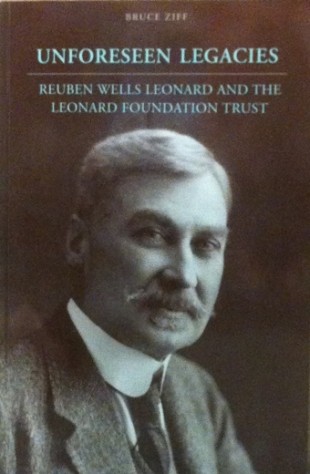by Bruce Ziff, Professor, Faculty of Law, University of Alberta. Published with the University of Toronto Press, 2000.
With great skill and diligence, Professor Ziff has taken hold of an apparently narrow topic and has used it to open up a wide window into some fascinating and neglected themes of the Canadian past. His subject is a sensitive and controversial one. In 1923, the Canadian mining magnate and philanthropist, Colonel Reuben Wells Leonard (1860-1930), endowed a scholarship fund. The deed creating the Leonard Trust asserted Colonel Leonard’s belief that ‘the White Race is, as a whole, best qualified by nature to be entrusted with the development of civilization,’ and restricted awards only to persons who were white, Protestant, and of British nationality or parentage. For over six decades, scholarships were awarded in accordance with the curious and disturbing terms set out by Colonel Leonard in 1923. Over this period, some notable Canadians served on the Leonard Foundation’s selection committee. However, in time controversy swirled around the Foundation and in 1986 the validity of the discriminatory qualifications was called into question. At first instance, an Ontario court found the trust valid, a holding that was reversed four years later by the Ontario Court of Appeal. In his study of the life of Reuben Wells Leonard, Professor Ziff chronicles the fortunes of the Leonard Foundation Trust in the context of an analysis of shifts in Canadian law and society concerning property rights and discrimination then (circa 1923) and now. This book dramatically reminds us of the changes which took place in Canadian values and beliefs between the 1920’s and the 1980’s. It offers penetrating insights into the extent and nature of societal evolution.

